
Aur: The Hidden Gem of the Marshall Islands
Aur, a picturesque atoll in the Marshall Islands, is a tranquil paradise that offers a unique escape from the hustle and bustle of everyday life. Nestled in the vast Pacific Ocean, Aur boasts pristine white-sand beaches, crystal-clear waters, and a vibrant underwater ecosystem that beckons snorkeling and diving enthusiasts from around the world. The atoll's remote location ensures a serene and intimate experience, making it an ideal destination for those seeking solitude and natural beauty. The local culture in Aur is rich and deeply rooted in tradition. Visitors can immerse themselves in the welcoming community, where they can learn about traditional Marshallese crafts, music, and dance. The islanders are known for their hospitality, often inviting tourists to join in their daily activities and celebrations. This cultural exchange provides a profound understanding of the Marshallese way of life and their harmonious relationship with nature. Aur is not just about relaxation; it also offers opportunities for adventure. The surrounding waters are teeming with marine life, making it a prime spot for fishing, kayaking, and paddleboarding. For those interested in history, the island holds remnants of World War II, including sunken ships and aircraft, which add an intriguing historical dimension to the visit. Whether you are exploring the underwater world or simply enjoying the breathtaking sunsets, Aur promises an unforgettable experience.
Local tips in Aur
- Respect local customs and dress modestly, especially when visiting villages.
- Bring cash, as there are no ATMs on the atoll and credit card facilities are limited.
- Plan your visit during the dry season (November to April) for the best weather conditions.
- Arrange your accommodations in advance, as lodging options are limited and can fill up quickly.
- Pack reef-safe sunscreen to protect the delicate marine ecosystem.
Aur: The Hidden Gem of the Marshall Islands
Aur, a picturesque atoll in the Marshall Islands, is a tranquil paradise that offers a unique escape from the hustle and bustle of everyday life. Nestled in the vast Pacific Ocean, Aur boasts pristine white-sand beaches, crystal-clear waters, and a vibrant underwater ecosystem that beckons snorkeling and diving enthusiasts from around the world. The atoll's remote location ensures a serene and intimate experience, making it an ideal destination for those seeking solitude and natural beauty. The local culture in Aur is rich and deeply rooted in tradition. Visitors can immerse themselves in the welcoming community, where they can learn about traditional Marshallese crafts, music, and dance. The islanders are known for their hospitality, often inviting tourists to join in their daily activities and celebrations. This cultural exchange provides a profound understanding of the Marshallese way of life and their harmonious relationship with nature. Aur is not just about relaxation; it also offers opportunities for adventure. The surrounding waters are teeming with marine life, making it a prime spot for fishing, kayaking, and paddleboarding. For those interested in history, the island holds remnants of World War II, including sunken ships and aircraft, which add an intriguing historical dimension to the visit. Whether you are exploring the underwater world or simply enjoying the breathtaking sunsets, Aur promises an unforgettable experience.
When is the best time to go to Aur?
Iconic landmarks you can’t miss
Marshall Islands Resort
Experience the serene beauty of the Marshall Islands at the Marshall Islands Resort, a perfect blend of relaxation and adventure in Majuro Atoll.

Runit Island
Explore Runit Island in Enewetak Atoll, a serene paradise with pristine beaches and a rich history of nuclear testing, perfect for adventurous travelers.
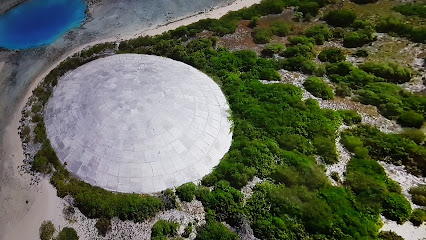
K&K Island Pride Supermarket
Explore K&K Island Pride Supermarket in Majuro Atoll for an authentic taste of the Marshall Islands with local products and culinary delights.
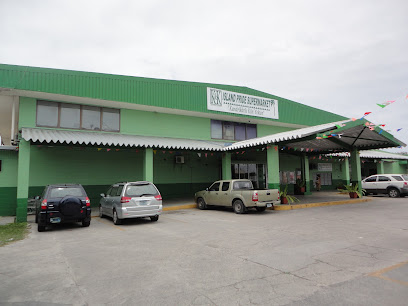
Tide Table Restaurant & Lounge
Savor the flavors of the Marshall Islands at Tide Table Restaurant & Lounge, where local cuisine meets breathtaking views in a relaxed atmosphere.
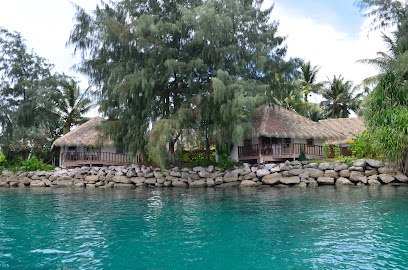
Majuro
Discover the tranquil beauty and vibrant culture of Majuro Atoll, the stunning capital of the Marshall Islands, perfect for adventure and relaxation.
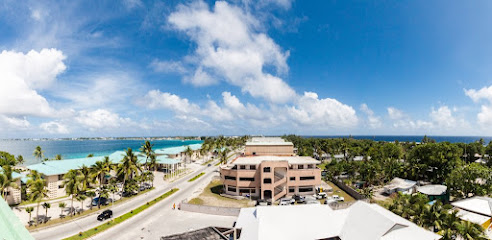
Private Island Boutique Resort Bikendrik Island Hideaway, Marshall Islands
Discover the ultimate luxury escape at Bikendrik Island Hideaway in the Marshall Islands—where paradise meets cultural richness.
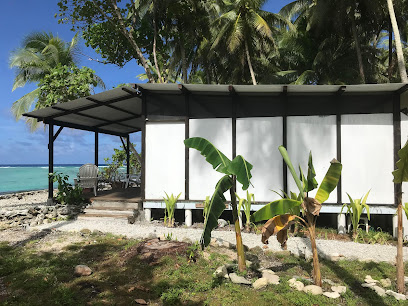
Alele Museum and Public Library
Explore the Alele Museum and Public Library for an enriching journey through the history and culture of the Marshall Islands.
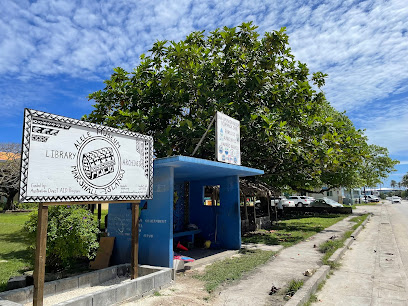
Beran Island Resort
Experience the ultimate escape at Beran Island Resort, where pristine beaches, adventure, and luxury await in the heart of the Marshall Islands.
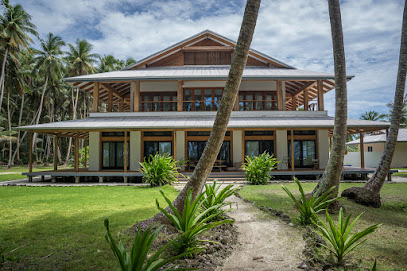
Delap Park
Discover the tranquility of Delap Park, a lush oasis in Majuro Atoll, perfect for relaxation, cultural experiences, and breathtaking views.
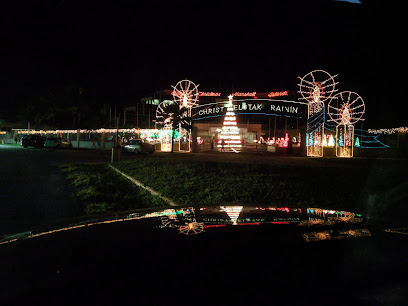
Ri-Wut Corner
Experience the welcoming charm of Ri-Wut Corner in Majuro, a vital stop for tourists exploring the beautiful Marshall Islands.
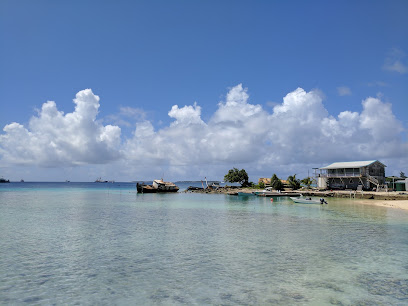
Ailuk Atoll
Experience the breathtaking beauty and rich culture of Ailuk Atoll, a hidden paradise in the Marshall Islands, perfect for adventure and relaxation.
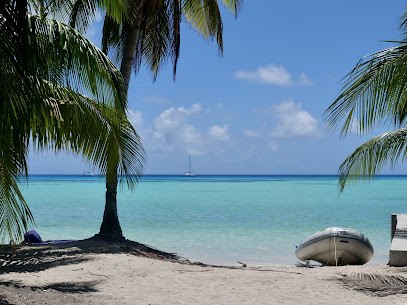
Aur Atoll
Experience the untouched paradise of Aur Atoll, where pristine beaches meet vibrant marine life in the heart of the Marshall Islands.

Beach Black
Discover the unique allure of Beach Black, a volcanic sand paradise in Kwajalein Atoll, perfect for relaxation, snorkeling, and enjoying breathtaking ocean views.

Unmissable attractions to see
Alele Museum and Public Library
Experience the cultural heart of the Marshall Islands at the Alele Museum and Public Library, where history and heritage come alive.
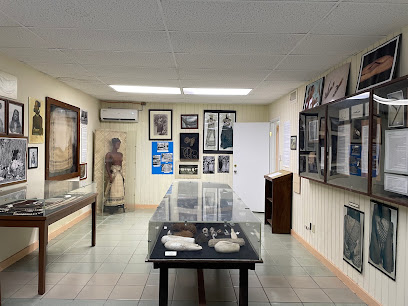
Delap Park
Discover the serene beauty of Delap Park in Majuro Atoll, a perfect getaway for relaxation and cultural immersion in the Marshall Islands.
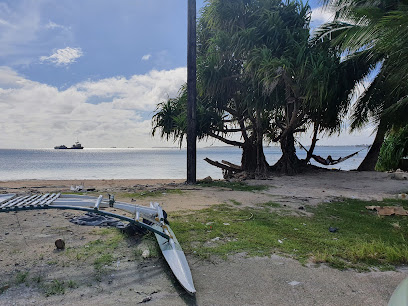
Essential places to dine
Mala Ocean Tavern
Discover the perfect blend of breathtaking ocean views and delectable American cuisine at Mala Ocean Tavern in Lahaina.
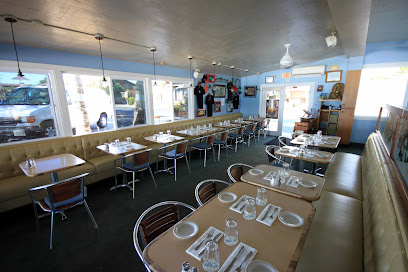
yak and yeti Indian restaurant
Experience authentic North Indian cuisine at Yak and Yeti in Kihei - where every dish tells a flavorful story.
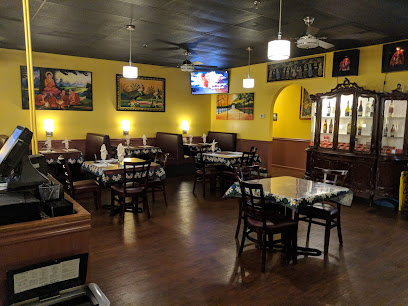
Izakaya Genbe
Experience authentic Japanese cuisine at Izakaya Genbe in Kihei, Hawaii - where every dish tells a story.
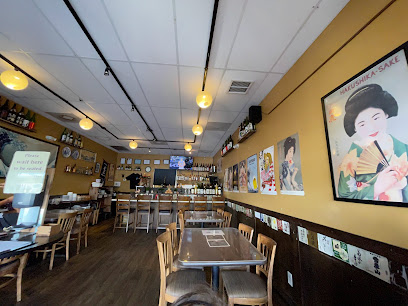
Vons Chicken Waimalu
Discover the irresistible taste of Korean-style fried chicken at Vons Chicken Waimalu in Aiea – a must-visit for every food lover.
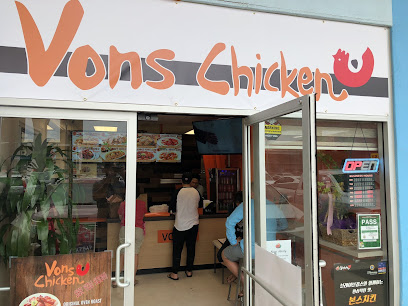
Mio Pastalogy
Experience authentic Italian flavors at Mio Pastalogy in Honolulu with homemade pasta and delectable dishes perfect for any meal.
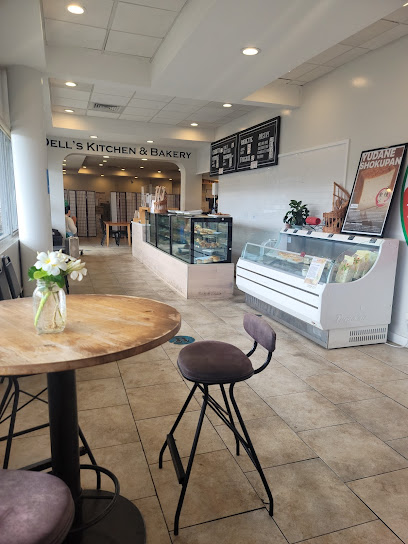
Tide Table Restaurant & Lounge
Experience exquisite local cuisine amidst breathtaking ocean views at Tide Table Restaurant & Lounge on Majuro Atoll.
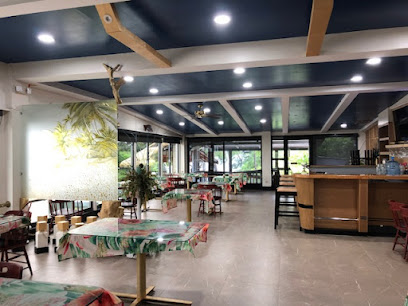
Uncle's Chicken
Experience the best of Asian Fusion cuisine at Uncle's Chicken in Honolulu – where local flavors meet culinary excellence.
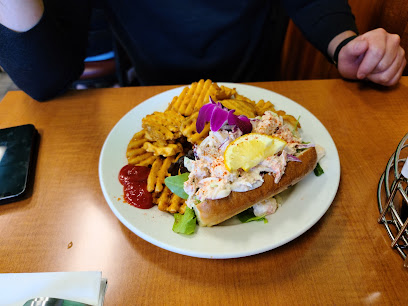
Toeak Bar and Grill
Experience authentic Marshallese flavors at Toeak Bar and Grill in Majuro Atoll – where every meal is a taste of paradise.
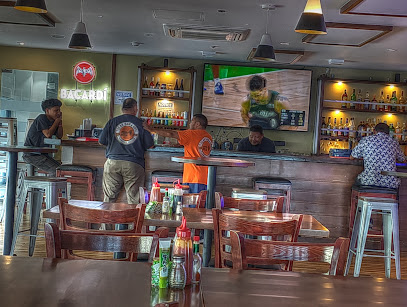
Won Hai Shien 旺海軒
Savor authentic Taiwanese cuisine in Majuro Atoll at Won Hai Shien, where every dish is a journey into rich flavors.
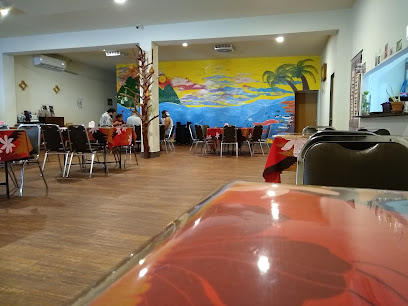
Taste & Traditions
Experience authentic Solomon Island cuisine at Taste & Traditions in Honiara – where every dish tells a story.
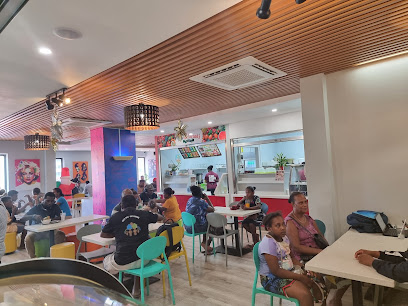
Island Star
Discover Island Star: A culinary treasure in Majuro Atoll blending local delicacies with international flavors for an unforgettable dining experience.
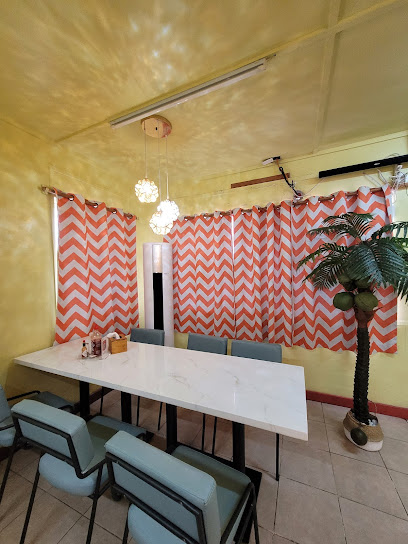
Blue Lagoon Restaurant
Discover authentic local cuisine at Blue Lagoon Restaurant on Majuro Atoll - where breathtaking views meet exquisite flavors.
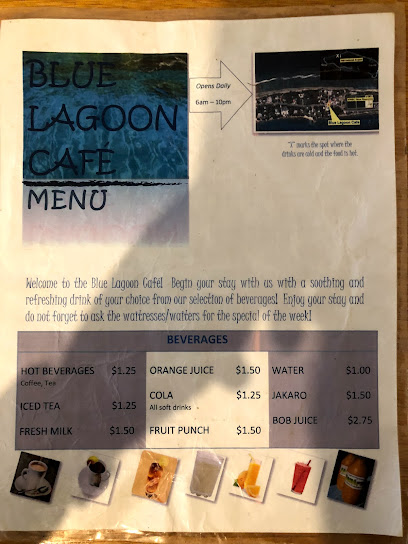
Jittak Take-out
Experience the best of local cuisine at Jittak Take-out in Majuro - fresh seafood, delightful pastries & more await!
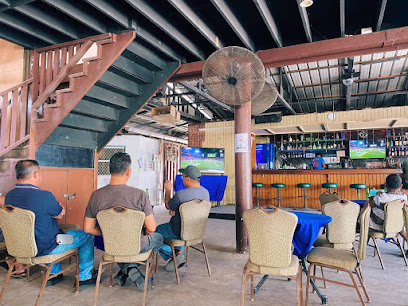
NKB Restaurant
Experience authentic Marshallese cuisine at NKB Restaurant on Majuro Atoll – where local flavors meet stunning island views.
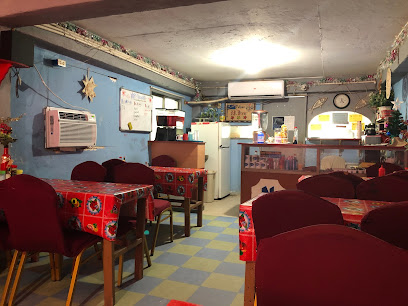
My Treehouse Take-Out
Discover family-friendly dining at My Treehouse Take-Out in Majuro Atoll - where local flavors meet warm hospitality in a beautiful setting.
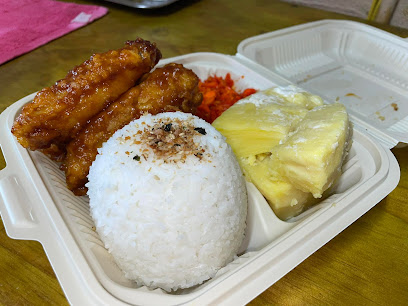
Markets, malls and hidden boutiques
K&K Island Pride Supermarket
Discover local flavors and the vibrant culture of the Marshall Islands at K&K Island Pride Supermarket, your essential shopping stop in Majuro.
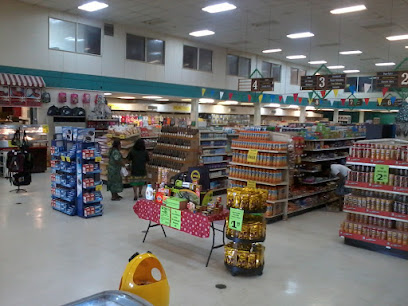
Payless Supermarket
Discover local flavors and essentials at Payless Supermarket in Majuro, where convenience meets cultural experience in the heart of the Marshall Islands.

EZ Price Mart
Discover authentic local flavors and essentials at EZ Price Mart in Majuro Atoll, a vibrant supermarket catering to tourists and locals alike.
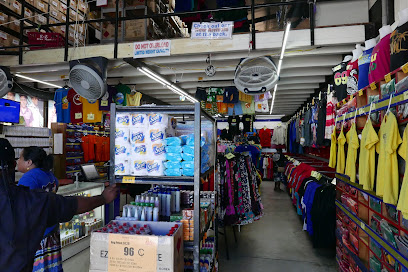
Majuro True Value
Explore Majuro True Value, the essential hardware store in the Marshall Islands for all your DIY and home improvement needs.
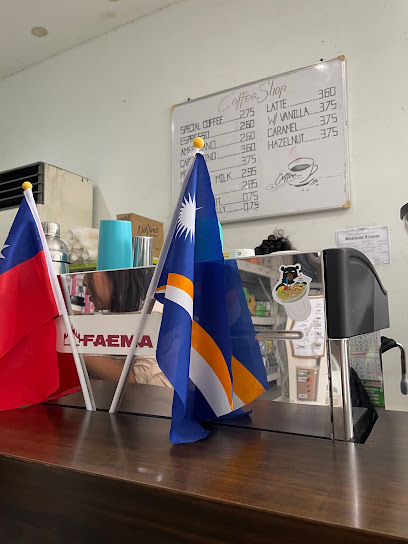
Payless Triple J
Explore the heart of Ebeye at Payless Triple J, your go-to supermarket for fresh produce and local favorites in the Marshall Islands.
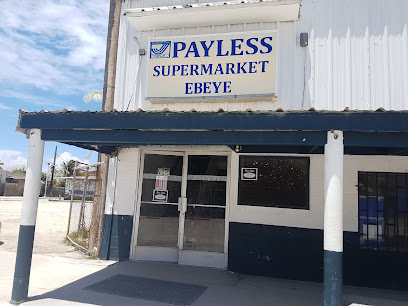
Do It Best
Discover the ultimate hardware shopping experience at Do It Best in Majuro Atoll, offering tools, supplies, and unique local crafts.
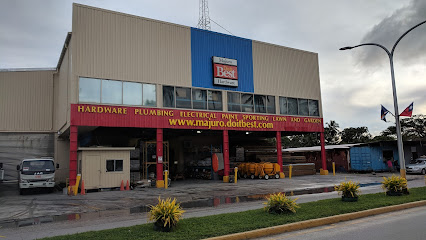
Green Energy Solutions
Explore sustainable living at Green Energy Solutions, Majuro's premier destination for solar energy innovations that empower eco-conscious choices.
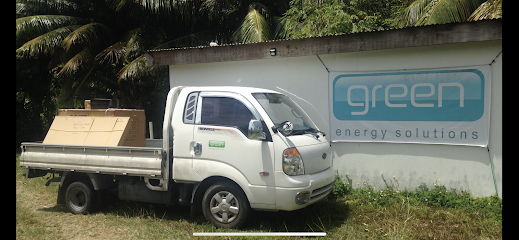
Aihua Store
Discover local flavors and essentials at Aihua Store, your friendly supermarket in Majuro, Marshall Islands.
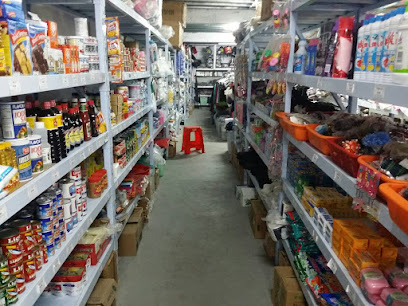
Elefa Handicraft Shop
Explore Elefa Handicraft Shop in Majuro Atoll for unique souvenirs and handmade crafts reflecting the rich culture of the Marshall Islands.
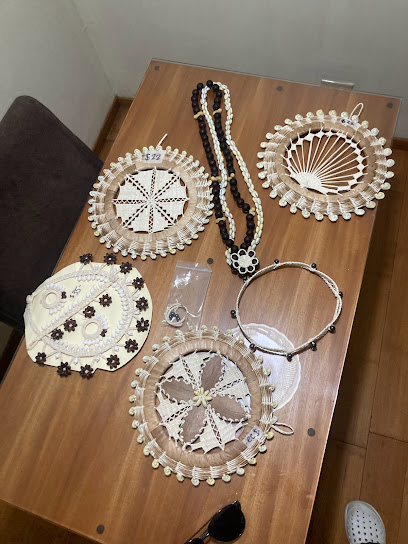
Formosa Supermarket
Explore Formosa Supermarket in Majuro Atoll for a unique shopping experience filled with local flavors and vibrant community life.
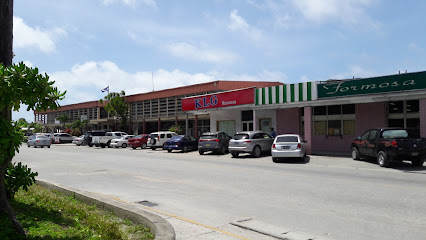
Office Mart
Explore Office Mart in Majuro Atoll for all your office supplies and essentials, a convenient stop for tourists seeking local products.

New Hope Store
Explore the vibrant fashion scene at New Hope Store in the Marshall Islands, showcasing unique clothing and accessories infused with local culture.
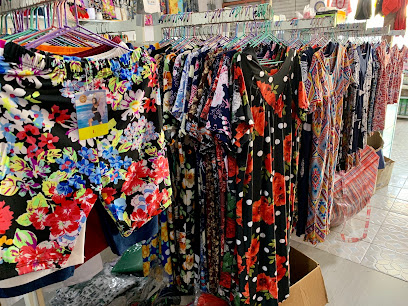
KNK Shopping Center
Discover local culture and a diverse shopping experience at KNK Shopping Center in Majuro Atoll, Marshall Islands.
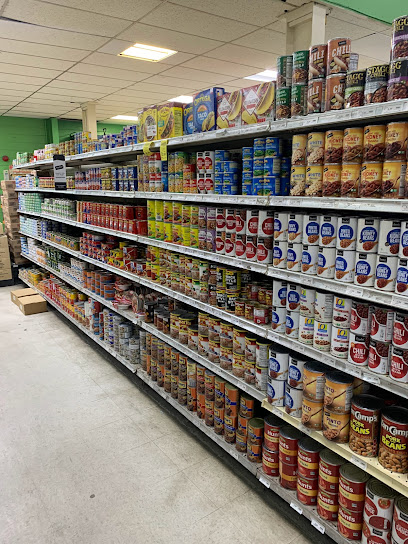
AIR Marshall Islands
Discover the beauty of the Marshall Islands with AIR Marshall Islands, your trusted airline for seamless travel across the Pacific paradise.
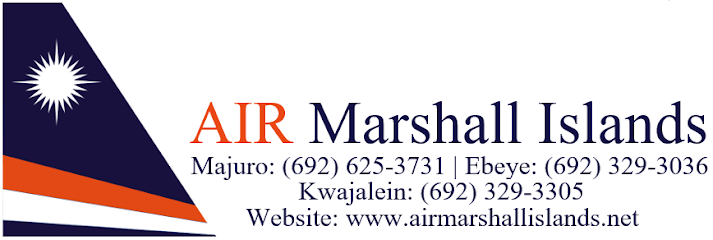
Small Island Store
Explore the charm of the Small Island Store in Majuro Atoll, your destination for unique local crafts and authentic Marshallese souvenirs.
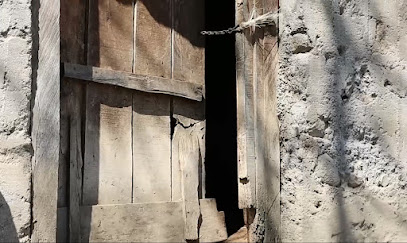
Essential bars & hidden hideouts
Marshall Islands Resort
Discover the enchanting beauty of the Marshall Islands Resort, where adventure meets tranquility in the heart of the Pacific.

Tide Table Restaurant & Lounge
Experience the culinary delights of Tide Table Restaurant & Lounge in Majuro, offering fresh local and international cuisine with stunning ocean views.
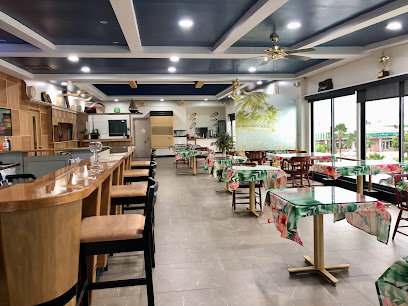
Hotel Robert Reimers
Experience the serenity of Majuro Atoll at Hotel Robert Reimers, your comfortable retreat in the heart of the Marshall Islands.
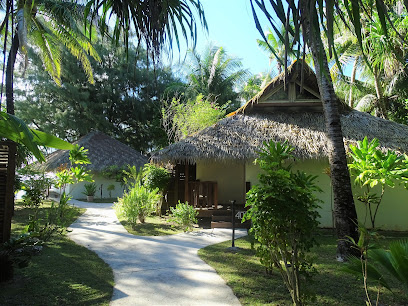
Oceanview Club
Discover the tranquil charm of Oceanview Club at Kwajalein Atoll, a perfect bar for relaxation, socializing, and stunning ocean views amidst the Marshall Islands.
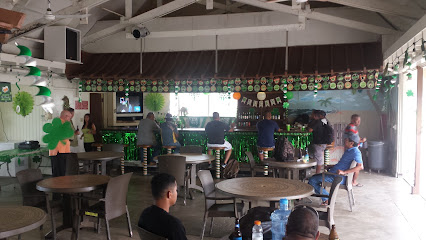
Private Island Boutique Resort Bikendrik Island Hideaway, Marshall Islands
Discover the luxurious serenity of Bikendrik Island Hideaway in the enchanting Marshall Islands, where paradise meets elegance.
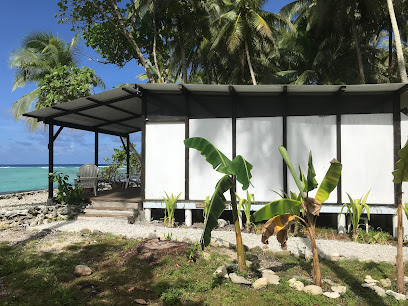
Outrigger Bar & Grill
Experience the delightful barbecue flavors at Outrigger Bar & Grill in the breathtaking Marshall Islands, where every meal is a taste of paradise.
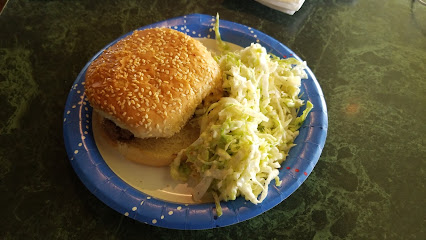
Toeak Bar and Grill
Discover the vibrant flavors and lively atmosphere of Toeak Bar and Grill in Majuro Atoll, a culinary gem of the Marshall Islands.
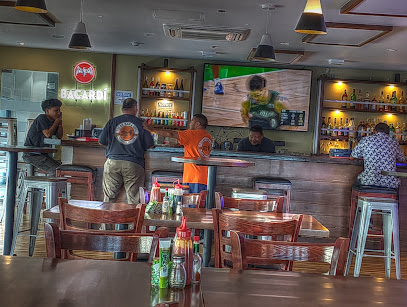
K&K Island Pride Supermarket
Explore the vibrant flavors and local products at K&K Island Pride Supermarket in Majuro Atoll, your go-to destination for unique Marshallese culinary delights.
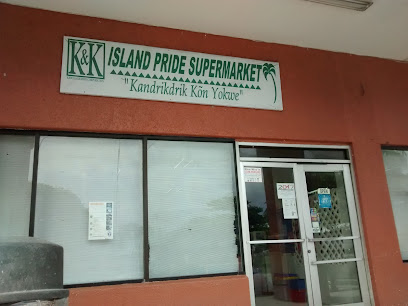
Flame Tree Backpackers Hostel
Discover the charm of Flame Tree Backpackers Hostel in Majuro Atoll, your gateway to adventure and relaxation in the stunning Marshall Islands.

Island Star
Experience the vibrant flavors of the Marshall Islands at Island Star, a culinary gem offering an unforgettable dining adventure.
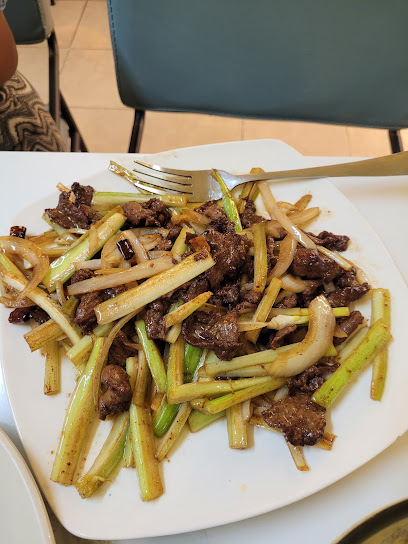
Seagull restaurant
Discover the exquisite flavors of Asian cuisine at Seagull Restaurant, Majuro Atoll's top dining destination, offering stunning views and a welcoming atmosphere.
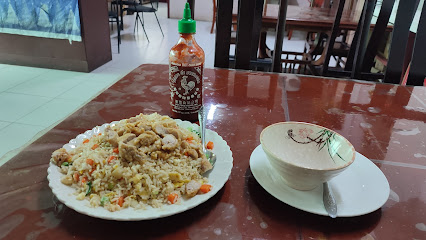
Aihua Store
Explore Aihua Store in Majuro for a unique blend of local and international products, perfect for tourists and locals alike.
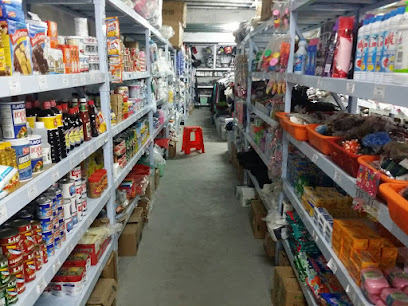
Harry's Bar
Experience the vibrant local culture and unwind at Harry's Bar, the perfect spot for tourists in the Marshall Islands.
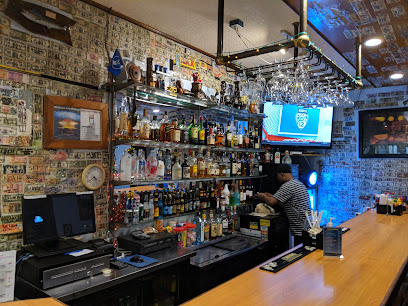
Jakaro Bar
Discover the vibrant atmosphere and tropical flavors of Jakaro Bar in Majuro Atoll, the perfect spot for relaxation and local culture.

The Hangar
Experience the vibrant atmosphere of The Hangar in Majuro Atoll, where refreshing drinks and local culture blend seamlessly in a tropical paradise.
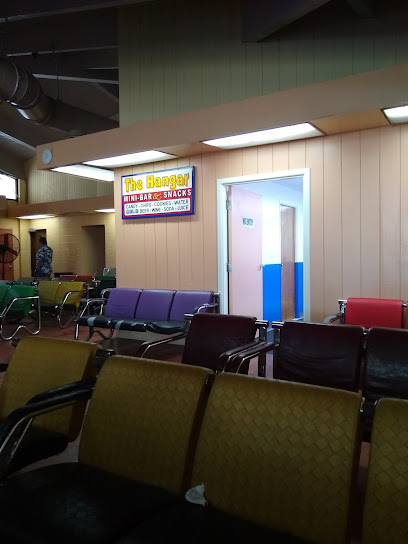
Local Phrases
-
- HelloYokwe
[yok-weh] - GoodbyeKommol tata
[koh-mohl tah-tah] - YesEo
[eh-oh] - NoJab
[jahb] - Please/You're welcomeKommol
[koh-mohl] - Thank youKommol tata
[koh-mohl tah-tah] - Excuse me/SorryJal ba
[jahl bah] - How are you?Eo im kwejela?
[eh-oh eem kweh-jeh-lah] - Fine. And you?Jen in kwe?
[jehn een kweh] - Do you speak English?Eo im kajjela ijo English?
[eh-oh eem kah-jeh-lah ee-joh English] - I don't understandJab im jinoinoino
[jahb eem jee-noy-noy-noy-noh]
- HelloYokwe
-
- I'd like to see the menu, pleaseEo ej jab menju rej etal, kommol
[eh-oh ey jahb mehn-joo rey eh-tahl, koh-mohl] - I don't eat meatJab im jerbal jidik
[jahb eem jehr-bahl jee-deek] - Cheers!Uran
[oo-rahn] - I would like to pay, pleaseEo ej jab emaron, kommol
[eh-oh ey jahb eh-mah-rohn, koh-mohl]
- I'd like to see the menu, pleaseEo ej jab menju rej etal, kommol
-
- Help!Aolep
[ah-oh-lehp] - Go away!Kwalok
[kwah-lohk] - Call the Police!Kutok Police!
[koo-tohk Police!] - Call a doctor!Kutok dokta!
[koo-tohk dohk-tah!] - I'm lostJab im jidik
[jahb eem jee-deek] - I'm illJab im kwe
[jahb eem kweh]
- Help!Aolep
-
- I'd like to buy...Eo ej jab buy...
[eh-oh ey jahb buy...] - I'm just lookingJab im jabdewot
[jahb eem jahb-deh-woht] - How much is it?Ke ejan kwe?
[keh eh-jahn kweh] - That's too expensiveKe kwe in jidik
[keh kweh een jee-deek] - Can you lower the price?Eo ej jab ewor, kommol?
[eh-oh ey jahb eh-wor, koh-mohl?]
- I'd like to buy...Eo ej jab buy...
-
- What time is it?Ke ejan kwe?
[keh eh-jahn kweh] - It's one o'clockJedik aikuj
[jeh-deek ah-ee-kooj] - Half past (10)Kwe in kile
[kweh een kee-leh] - MorningKoero
[koh-eh-roh] - AfternoonJinedik
[jee-neh-deek] - EveningJino
[jee-noh] - YesterdayJiban
[jee-bahn] - TodayJidik
[jee-deek] - TomorrowJitok
[jee-tohk] - 1Aikuj
[ah-ee-kooj] - 2Lijerbal
[lee-jehr-bahl] - 3Jilu
[jee-loo] - 4Jilonan
[jee-loh-nahn] - 5Jiku
[jee-koo] - 6Jim̧o
[jee-moh] - 7Jibaj
[jee-bahj] - 8Jito
[jee-toh] - 9Jilolok
[jee-loh-lohk] - 10Jidikuj
[jee-dee-kooj]
- What time is it?Ke ejan kwe?
-
- Where's a/the...?Ke ejan...
[keh eh-jahn...] - What's the address?Ke ejan aolep
[keh eh-jahn ah-oh-lehp] - Can you show me (on the map)?Eo ej jab wot im (ri lok map)?
[eh-oh ey jahb woht eem (ree lohk map)?] - When's the next (bus)?Ke etal aikuj (bus)?
[keh eh-tahl ah-ee-kooj (bus)?] - A ticket (to ....)Jab im jerbal (eto ....)
[jahb eem jehr-bahl (eh-toh ....)]
- Where's a/the...?Ke ejan...
History of Aur
-
Aur Atoll, part of the Marshall Islands, has been inhabited by Micronesian and Polynesian peoples for centuries. The early settlers were skilled navigators and fishermen who relied on the rich marine life and the abundant resources of the atoll. The oral traditions and archaeological findings suggest that Aur was an important stopover for voyagers traversing the Pacific Ocean.
-
In the late 19th century, the Marshall Islands, including Aur Atoll, came under German control as part of the broader colonial push in the Pacific. The Germans established a protectorate over the islands in 1885. During this time, they introduced new administrative structures and attempted to exploit the natural resources of the region, including copra production from coconut plantations.
-
After World War I, the Treaty of Versailles granted Japan control over the Marshall Islands, including Aur Atoll. During World War II, the Japanese fortified many of the islands, anticipating Allied attacks. Aur Atoll, however, remained relatively quiet compared to other parts of the Marshall Islands which saw significant military action. Despite this, the presence of Japanese forces influenced local life and left a lasting impact on the region.
-
Following Japan's defeat in World War II, the Marshall Islands came under U.S. administration as part of the Trust Territory of the Pacific Islands. This period saw significant changes in infrastructure, education, and governance. Aur Atoll, like other parts of the Marshall Islands, experienced increased interaction with the outside world, leading to both opportunities and challenges for the local communities.
-
The Marshall Islands gained independence in 1986 under the Compact of Free Association with the United States. Since then, Aur Atoll has navigated the complexities of self-governance, economic development, and cultural preservation. Modern developments have brought improvements in healthcare, education, and connectivity, while traditional practices and customs continue to play a vital role in daily life on the atoll.
-
Aur Atoll is rich in cultural heritage, with traditions that have been passed down through generations. The local population continues to practice traditional crafts such as weaving and canoe building. Festivals and rituals, often centered around the lunar calendar, reflect the deep connection between the people and their environment. The preservation of the Marshallese language and oral histories remains a priority for the community.
Aur Essentials
-
Aur Atoll is located in the Ratak Chain of the Marshall Islands. The most common way to get there is by flying into Amata Kabua International Airport in Majuro, the capital of the Marshall Islands. From Majuro, you can take a domestic flight with Air Marshall Islands to Aur. These flights are not daily, so it's important to check the schedule in advance. Alternatively, you can arrange for a boat transfer, which can be an adventurous but longer option.
-
Aur is a small atoll, and most of its areas can be explored on foot. There are no formal public transport systems on the atoll. For longer distances, locals typically use boats to travel between islands within the atoll. If you need to charter a boat, it’s best to make arrangements with local guides or through your accommodation.
-
The official currency of the Marshall Islands is the United States Dollar (USD). Credit card facilities are extremely limited, so it is advisable to carry sufficient cash for your entire trip. There are no ATMs on Aur, so make sure to withdraw enough money in Majuro before heading to the atoll. Be prepared for a largely cash-based economy.
-
Aur is generally very safe for tourists, and crime rates are extremely low. However, it is always wise to take standard precautions such as keeping your belongings secure and avoiding isolated areas at night. There are no specific high-crime areas targeting tourists on Aur.
-
In case of an emergency, it is crucial to have a plan as medical and emergency services are limited on Aur. For medical emergencies, contact the local health dispensary. It is highly recommended to have travel insurance that covers medical evacuation. For serious emergencies, assistance will likely need to come from Majuro. Always carry a charged mobile phone with local emergency contacts saved.
-
Fashion: Do dress modestly in respect of local customs. Avoid overly revealing clothing. Religion: Do respect local religious practices and customs. Attend church services if invited. Public Transport: There is no formal public transport; do arrange boat transfers in advance. Greetings: Do greet people warmly, a simple 'Yokwe' (hello) is appreciated. Eating & Drinking: Do try the local cuisine, and always accept food offerings graciously. Don't waste food, as it is considered disrespectful.
-
To experience Aur like a local, engage with the community and participate in local events and church services. Visit local markets to buy handmade crafts and traditional foods. Fishing and snorkeling are popular activities, and locals are often willing to share their knowledge and techniques. Respect the environment by not littering and following local guidelines for waste disposal.
Trending Landmark in Aur
Nearby Cities to Aur
-
Things To Do in Majuro
-
Things To Do in Mili
-
Things To Do in Kosrae
-
Things To Do in Anabar
-
Things To Do in Ijuw
-
Things To Do in Uaboe
-
Things To Do in Anibare
-
Things To Do in Denigomodu
-
Things To Do in Buada
-
Things To Do in Aiwo
-
Things To Do in Boe
-
Things To Do in Yaren
-
Things To Do in Nan Madol
-
Things To Do in Pohnpei
-
Things To Do in Kolonia







